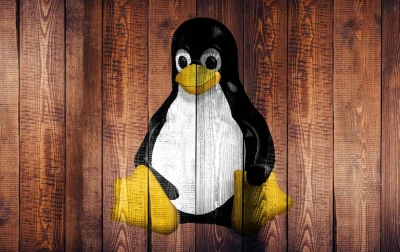
Linus Torvalds, the revered leader of the open-source movement, has shown that even minute changes can make a significant difference. A relatively small recent code modification made by the Linux kernel developer has significantly improved Linux's performance.
The change is known as x86/uaccess" and it avoids barrier_nospec() when copying 64-bit (). This minor change, initially submitted by Red Hat developer Josh Poimboeuf and revised by Torvalds, addresses critical security issues while improving performance. I'll examine the essence of this patch, the types of attacks it protects against, its security and performance impacts, and the broader implications of this patch for us Linux users.
Understanding The Essence of This Patch
This recent patch aims to improve Linux's performance by changing how the kernel handles copying operations from the user space. It mitigates the usage of the barrier_nospec(). This API was designed to thwart speculative execution attacks such as Meltdown and Spectre, which were first made public in 2018. Modern CPUs use speculative execution to increase efficiency. However, it can also expose security vulnerabilities.
Torvalds' patch replaces barrier_nospec() with pointer masking. This method returns all 1s when the copy_from_user() attempts to access an invalid address. This approach offers a measurable performance boost while maintaining security.
Addressing Meltdown and Spectre Attacks
 Meltdown and Spectre attacks are side-channel attacks that exploit the CPU’s speculative processing to gain access to sensitive data. These vulnerabilities shocked the IT community, leading to a widespread effort to patch and defend themselves against these threats.
Meltdown and Spectre attacks are side-channel attacks that exploit the CPU’s speculative processing to gain access to sensitive data. These vulnerabilities shocked the IT community, leading to a widespread effort to patch and defend themselves against these threats.
These security measures often result in significant overhead and a noticeable performance degradation. This trade-off is controversial, especially in environments where performance matters most.
The Register reports, "Defending these attacks is a necessary evil. Running web servers and the like is a primary usage of Linux, and such boxes must be locked down against every conceivable attack - even at the cost of disabling performance-enhancing features."
Performance Improvements
This patch is essential because it combines security and performance. The patch, which avoids the barrier_nospec() and uses pointer masking to improve the per_thread_ops, achieves a 2.6% increase in the benchmark. The kernel testing robot verified this. This is not a mere statistical anomaly but a vital improvement for systems that run high-thread workloads such as web servers or data processing applications.
Torvalds acknowledged that the code change positively impacted performance, stating, "The kernel testing robot reports a 2.6% improvement in the per_thread_ops benchmark," which shows the real-world effect of the seemingly minor change.
Security and Performance Trade-Offs
 Balancing performance and security is one of the most persistent challenges for operating system developers, particularly when it comes to a platform as popular as Linux. In response to Meltdown, Spectre, and other vulnerabilities, mitigations were implemented to prioritize performance at the expense of security. Torvalds has been known to be critical of performance-killing methods.
Balancing performance and security is one of the most persistent challenges for operating system developers, particularly when it comes to a platform as popular as Linux. In response to Meltdown, Spectre, and other vulnerabilities, mitigations were implemented to prioritize performance at the expense of security. Torvalds has been known to be critical of performance-killing methods.
It is important to note that the new patch does not force administrators to choose between performance and security. The patch reduces the risk of speculative execution by making a small but strategic change to how invalid addresses are treated in copy_from_user(). This is done without the usual overhead associated with security patches.
Broader Implications for The Linux Community
This patch demonstrates Torvalds' deep understanding of low-level x86 architecture and his ability to make decisions that benefit the broader Linux community. The Register reports, "Very few people have his level of technical knowledge, particularly of the x86 Architecture—and most of those who work for large chip vendors." They are under NDA and cannot talk about it.
Torvalds’ background at chip vendor Transmeta, where he was employed for his low-level expertise in building Crusoe chips, illustrates his extensive knowledge in this area. His contributions will ensure that Linux is a safe and performant platform for users and businesses worldwide.
Our Final Thoughts on Torvalds' New Patch
Linus Torvalds' small but significant patch is a testament to modern operating systems' delicate balance between performance and security. The patch addresses critical vulnerabilities and improves performance. It is a practical solution to one of the most pressing problems in the tech world. This recent patch boosts performance for administrators and developers and emphasizes the need to remain vigilant and innovative in the face of evolving security threats. Linus Torvalds, the creator of Linux, continues to shape its future with this patch. It ensures that Linux remains secure, robust, and efficient in a technologically changing landscape.















